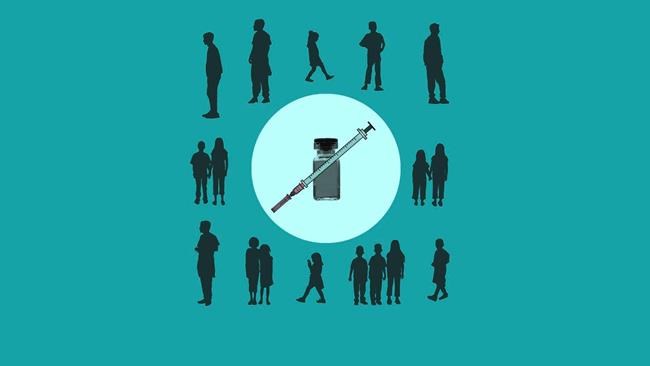When will children be able to get COVID-19 vaccines?
Advertisement
Read this article for free:
or
Already have an account? Log in here »
To continue reading, please subscribe:
Monthly Digital Subscription
$0 for the first 4 weeks*
- Enjoy unlimited reading on winnipegfreepress.com
- Read the E-Edition, our digital replica newspaper
- Access News Break, our award-winning app
- Play interactive puzzles
*No charge for 4 weeks then price increases to the regular rate of $19.00 plus GST every four weeks. Offer available to new and qualified returning subscribers only. Cancel any time.
Monthly Digital Subscription
$4.75/week*
- Enjoy unlimited reading on winnipegfreepress.com
- Read the E-Edition, our digital replica newspaper
- Access News Break, our award-winning app
- Play interactive puzzles
*Billed as $19 plus GST every four weeks. Cancel any time.
To continue reading, please subscribe:
Add Free Press access to your Brandon Sun subscription for only an additional
$1 for the first 4 weeks*
*Your next subscription payment will increase by $1.00 and you will be charged $16.99 plus GST for four weeks. After four weeks, your payment will increase to $23.99 plus GST every four weeks.
Read unlimited articles for free today:
or
Already have an account? Log in here »
Hey there, time traveller!
This article was published 04/03/2021 (1743 days ago), so information in it may no longer be current.
NEW YORK – When will children be able to get COVID-19 vaccines?
It depends on the child’s age, but some teenagers could be rolling up their sleeves before too long.
The Pfizer vaccine already is cleared for use starting at age 16. That means some high schoolers could get in line for those shots whenever they become eligible in their area, either because of a medical condition or once availability opens up.

Pfizer and Moderna both have completed enrolment for studies of children ages 12 and older, and expect to release the data over the summer. If regulators clear the results, younger teens likewise could start getting vaccinated once supply allows. The Moderna vaccine is currently cleared for people 18 and older.
Researchers started with older children because they tend to respond to vaccines most similarly to adults. Testing even younger groups is more complex, because they may require a different dose or have differing responses.
“Children are not just small adults,” said pediatrician Dr. James Campbell of the University of Maryland School of Medicine. “The younger you get, the higher the odds are that things could be different.”
Children develop serious illness or die from COVID-19 at much lower rates than adults, but can still spread the virus.
“There’s no question: we do want to immunize children,” said Drexel University pediatrics professor Dr. Sarah Long.
Pfizer and Moderna expect to start studies in children 11 and younger later this year.
“It’s unlikely we could get community protection without immunizing children,” Long added. “This is the lynchpin to getting everything back to some kind of normalcy.”
__
The AP is answering your questions about the coronavirus in this series. Submit them at: FactCheck@AP.org.
Read previous Viral Questions:
How would COVID-19 vaccine makers adapt to variants?
How do we know the COVID-19 vaccines are safe?
How are experts tracking variants of the coronavirus?


